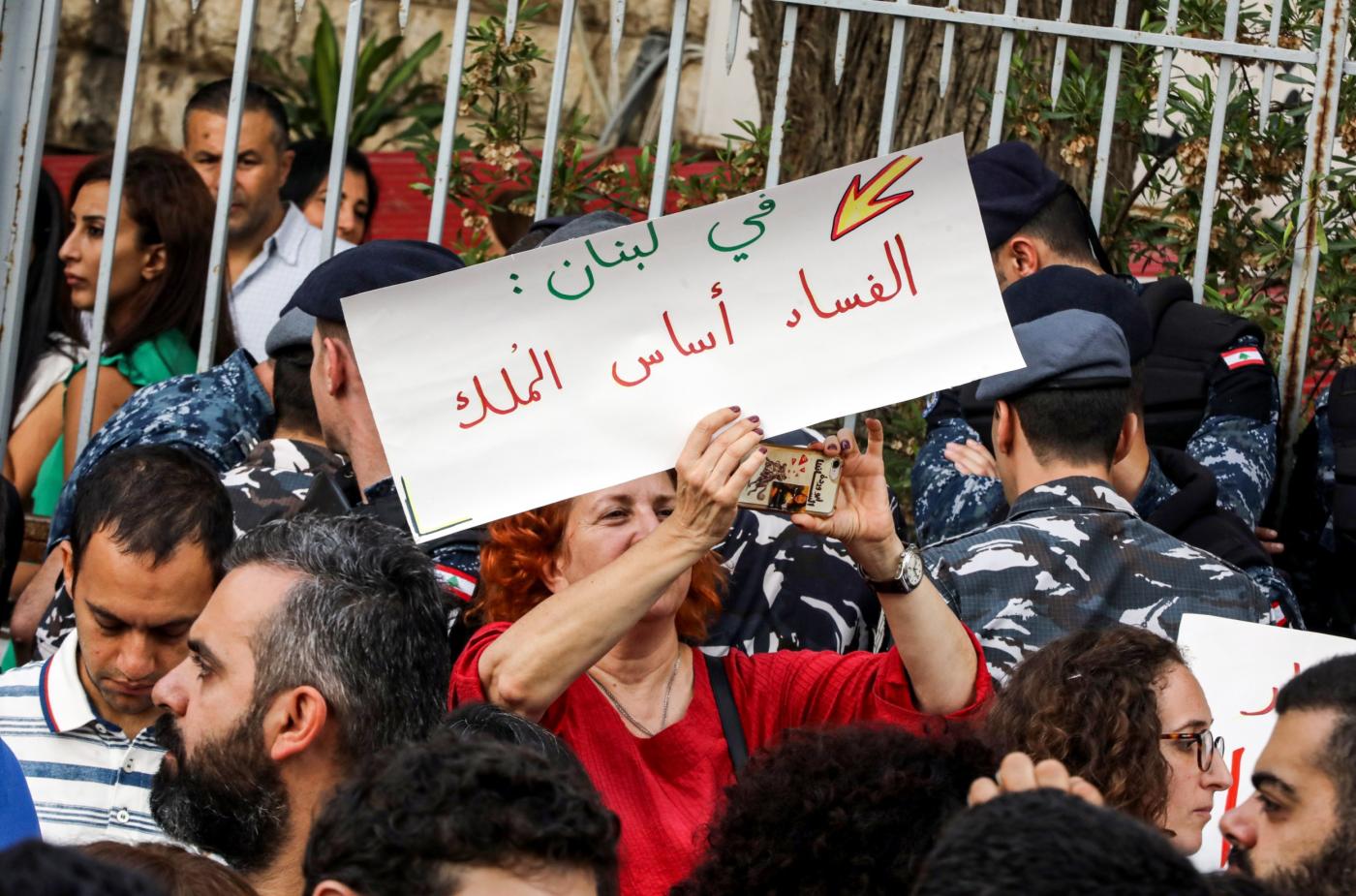The effects of corruption permeate every corner of public life in Lebanon, where bribery is criminalized but widespread and somewhat expected even when completing basic government services such as renewing your passport.
Run under a confessional power-sharing arrangement, Lebanon is perceived to be the 137 least corrupt nation out of 180 according to the 2019 Corruption Perceptions Index. The Lebanese Transparency Association (LTA) lists several causes behind the presence of rampant patronage networks and bribery in Lebanon, including the post-war structure and the lack of awareness on corruption, its causes and consequences.
Corruption is manifesting in different ways
The United Nations Office on Drugs and Crime (UNODC) lists sixteen effects of corruption, including public frustration and cynicism, an increase in polarization and unrest, and a diminished state capacity. Other effects include undermining the Sustainable Development Goals (SDGs).
Although Lebanon achieved seven of its SDGs according to the “Voluntary National Review on Sustainable Development Goals,” progress remains to be made in several other pressing issues. Some of these include poverty reduction and environmental sustainability.
Corruption, the lack of transparency, sectarianism, outdated legislation, centralization, and insufficient access to data all stand in the way of implementingSDGs in Lebanon.
As Lebanon’s economy crumbles, rooting out corruption and implementing SDGs can both help the country win over international support and inject major foreign funds that can reform and restructure the financial system into one that is productive.
The rich are still getting richer (and the poor are getting poorer)
The economic crisis faced in Lebanon is deepening by the day, with economic loss and inefficiency further exacerbated by corruption. According to a recent article published in Reuters, Lebanon’s finance ministry officials project a Gross Domestic Product (GDP) contraction of 12 percent for 2020 and inflation topping 27 percent.
Corruption also increases poverty, creating a state of unequal opportunity in which advantages arise only for those within a corrupt clientelistic network. According to recent figures from Lebanon’s Ministry of Finance, about 45 percent of Lebanese now live below the poverty line. Aside from the skyrocketing unemployment rate and plummeting value of the local currency, average citizens are expected to deal with the cost of two electricity bills, rely on private water suppliers, and have enough left over to buy groceries at massively inflated prices.
Under conditions of corruption, healthcare and poverty relief can become a source of personal enrichment for bureaucrats, contractors, and party officials. Data from income tax figures shows that 20 percent of all bank deposits in 2017 were made by 1,600 accounts only –or 0.1 percent of all deposit accounts in Lebanon. Just last year, 20 Lebanese politicians ended up on Forbes’ 2019 Billionaire List.
Human rights are suffering
The United Nations Office of the High Commission for Human Rights (OHCHR) has noted significant connections between corruption and human rights violations. In their recent World Report 2020, the Human Rights Watch (HRW) indicated that the rights situation in Lebanon deteriorated in 2019, culminating in widespread anti-government protests.
Security forces at times used excessive and unnecessary force against protesters, notably during the December 14 and 15 protests. Lebanese authorities have also prosecuted individuals for peaceful speech that contradicts the state or public figures,and security agencies interrogating these individuals have in some cases subjected them to abuse and detained them pretrial.
Other effects of corruption listed by UNODC include personal loss, intimidation and inconvenience, failures in infrastructure, impunity and partial justice, public and private sector dysfunctionality, organized crime and terrorism, rising illiberal populism, armed conflict and atrocity crimes, climate change and damage to biodiversity, as well as rigged economic and political systems.
The World Bank systematic country diagnostic on Lebanon in 2016 suggested that“confessionally-driven staffing of public institutions at the expense of merit-based criteria impedes the state’s ability to deliver quality public services efficiently and to generate inclusive and sustainable growth.”
“The need to maintain a sectarian ‘balance of power’ within institutions, reflected in both staffing and a division of responsibilities for resource allocation, results in sectarian interests being prioritized over the need for equitable and adequate provision of services, and a general lack of transparency and accountability.”
The effects of corruption are myriad, and span different areas such as humanitarian, political, economic, and moral ones. It can also lead to an uprising against corrupt elites, such as the one seen in Lebanon on October 17.


